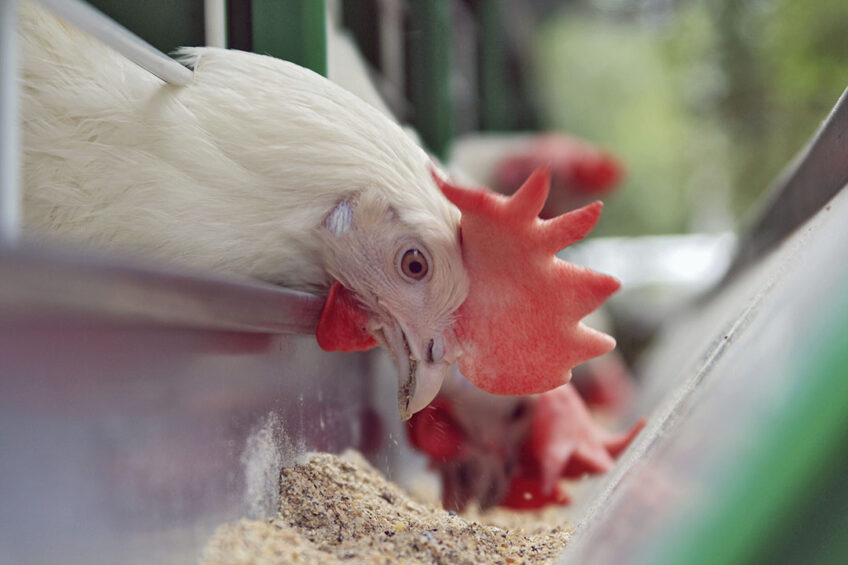Is seaweed the answer to poultry disease prevention?

More farmers and more farmers are aware of poultry farming disease management. Here’s how the right amount of seaweed is shaping up to boost the immune response of commercial poultry.
From the moment eggs hatch, poultry pick up bacteria from their surroundings, their feed and the people handling them. Much of that bacteria ends up in their GI system, multiplying until they’ve colonised every part of it from the oesophagus and the crop to the intestines and cloaca. If commercial farmers are lucky, most of these microbes are beneficial. If not, harmful pathogens can spread through poultry like a wildfire, decimating flocks in the blink of an eye.
Boosting poultry immune response at the gut level
With all of the different strains of harmful bacteria, it’s critical that producers take action early to give their poultry flock a fighting chance. Poultry farming disease management strategies like spraying disinfectant mists or eliminating disease-carrying pests from housing systems are an excellent start to reduce the source of infection. Yet when poultry does get infected, there’s not much these types of preventative measures can do to prevent a viral spread from bird to bird.
The best line of defence once viruses like Salmonella, E. coli and Clostridium enter the gut tract is the microfauna within a bird’s gut. When there is a diverse population of bacteria and other microbes throughout poultry’s GI tract, any microscopic invaders will have to compete with a more established colony of microorganisms – some of which even produce anti-microbial properties to hinder the success of pathogens in killing their host.
Preliminary results for seaweed supplements
In our previous trials, we had seen how seaweed supplements can increase the healthy gut bacteria and immune response of livestock such as cattle, and we wondered: could we see the same result with poultry? As with most questions, we set up a trial to test the hypothesis.
We started by enriching a standard chick starter ration by swapping out 2% with our Tasco feed supplement. One-day-old chicks were then inoculated with Salmonella and Campylobacter and were sacrificed after ten days to compare the tissues from their organs and faeces against a control group of chicks. The results showed a significant reduction in the amount of both strains of bacteria, which is promising especially since the chicks were still forming their gut biomes.
This offers incredible possibilities for commercial and free-range production birds. Using our seaweed feed supplement in flock disease management can help to create another vital barrier, fortifying the health of these birds throughout their entire lives – from hatched egg to entrée.
Using seaweed in your chicken feed for better eggs
When you crack open an egg and drop it in the frying pan, your eyes make a decision about whether or not it’s going to be delicious long before the flavour reaches your taste buds. In fact, whether the yolk is a light yellow or a rich orange hue can change how people perceive the food that arrives on their plates.
More than just looking great, darker yolks offer greater nutritional value that more consumers are starting to crave. From large-scale operations to modest farmsteads, there’s definitely a benefit to finding which chicken feed supplements can enrich your average yolk.
Here’s what causes that beautiful yolk pigmentation and why you should consider incorporating dry kelp for chickens into your flock’s feed regimen.
Omega-3s are the answer
The colour of an egg’s yolk depends to a large degree upon the amount of omega-3s in the mother hen’s diet. Birds that receive plentiful sources of this fatty acid are able to pass more of these nutrients along to their offspring. Plus, they are better equipped to fight off the impact of oxidative stress on their GI tract, which has a downstream effect on laying hens’ overall health.
Where can chicken obtain this essential fatty acid? As it turns out, there are many sources that are safe for chickens—flaxseed, linseed, fish oil or even the right seaweed feed supplement can help to provide flocks with plenty of omega-3s. And picking the right option can help your birds in more ways than one.
Benefits of using seaweed or kelp meal for chicken
When researchers conducted trials on Leghorn hens to see how they performed with seaweed supplements, the results were fantastic. The laying hens that received a reliable source of omega-3 fatty acids from all-natural seaweed saw improvements in egg yolk colour, albumen height and lipid content, all without altering the taste.
The right amount of seaweed can help to boost the GI, immune and overall health of flocks of all sizes. All of these health advantages combine to consistently produce richer, more nutritious eggs that keep consumers coming back for more.
References available on request


